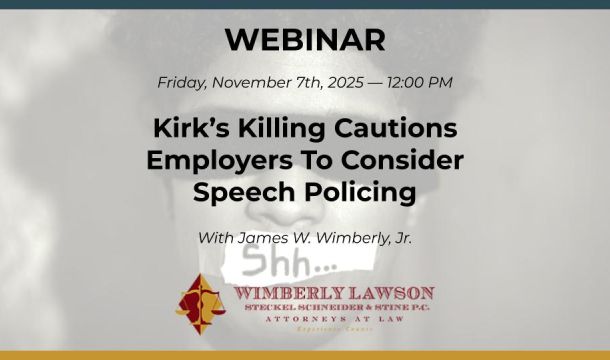Don’t Skirt the Issue of Religious Accommodation
This week, the US Equal Employment Opportunity Commission (EEOC) filed a lawsuit against a South Carolina automotive parts manufacturer that refused to hire a Pentecostal job seeker because her faith requires her to wear a skirt rather than pants. (EEOC v. Akebono Brake Corp., D.S.C., No. 3:16-cv-03545, complaint filed11/2/16). Per the Complaint, when a temporary staffing agency tried to place Clintoria Burnett with Akebono Brake Corp., the company's human resources department told the staffing agency not to hire Burnett for a job in Akebono's West Columbia, S.C., facility because of her desire to wear a skirt. Burnett, an observant member of the Apostolic Faith Church of God and True Holiness, had never worn pants, even as a child. The EEOC alleges that Akebono refused Burnett employment without even attempting to discuss and accommodate the conflict between her religion and its work rule requiring employees to wear pants on its West Columbia manufacturing floor. And that appears to be the real problem—that Akebono failed to make any effort to seek an accommodation of Burnett's religious garb.
This is an example where inflexible adherence to a work rule can get an employer into trouble. The EEOC takes the position that employers need to accommodate workers' wearing of religious garb when consistent with a sincerely held belief and where it would not impose an undue hardship on the employer's business. An EEOC Fact Sheet specifically addresses the situation of an employee or prospective employee who needs to wear a skirt rather than pants for religious reasons: in that case, private and public employers "must generally" grant such workers an exception from an employee uniform policy requiring the wearing of pants, the fact sheet says, unless the employer can show the type of skirt the worker seeks to wear "would pose an actual safety hazard." Therefore, an employer must make some effort to determine if it can accommodate an employee's religious garb, even when that garb violates a clear work rule.

Kathleen J. Jennings is a former principal in the Atlanta office of Wimberly, Lawson, Steckel, Schneider, & Stine, P.C. She defends employers in employment matters, such as sexual harassment, discrimination, Wage and Hour, OSHA, restrictive covenants, and other employment litigation and provides training and counseling to employers in employment matters.
Related Content
Get Email Updates
Recent Content

Update of Work Authorization Immigration Status as of October 8, 2025

Workplace Investigations Largely Shut down, but Courts Remain Open during Shutdown for Now

Kirk’s Killing Cautions Employers To Consider Speech Policing

Trump Nominates Appointments to NLRB and EEOC but Policy Changes Likely to Be Delayed

DOL Launches Self-Audit Programs Designed to Help Employers Improve Compliance
